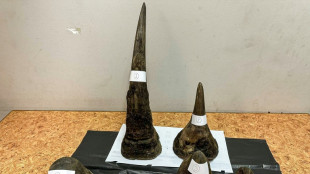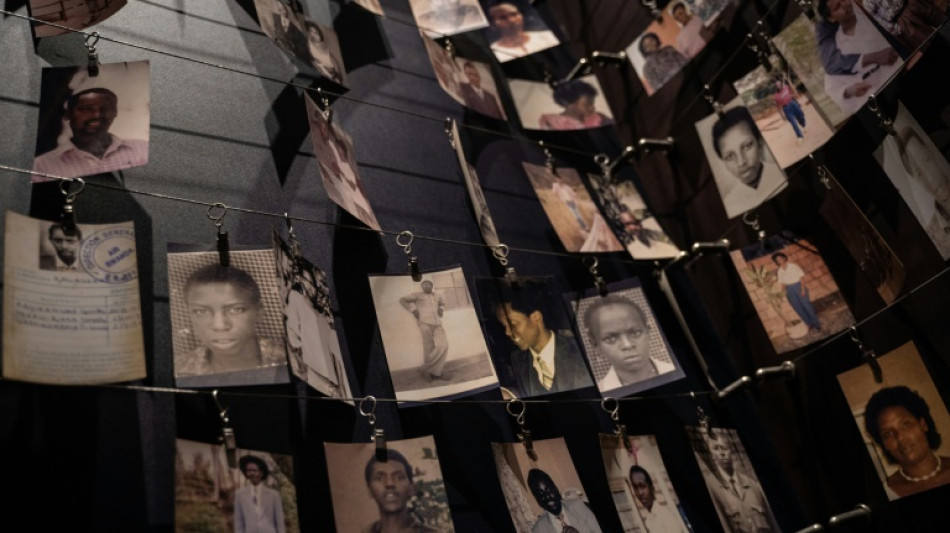
-
 No excuses for Shiffrin after Olympic team combined flop
No excuses for Shiffrin after Olympic team combined flop
-
Pool on wheels brings swim lessons to rural France

-
 Europe's Ariane 6 to launch Amazon constellation satellites into orbit
Europe's Ariane 6 to launch Amazon constellation satellites into orbit
-
Could the digital euro get a green light in 2026?

-
 Spain's Telefonica sells Chile unit in Latin America pullout
Spain's Telefonica sells Chile unit in Latin America pullout
-
'We've lost everything': Colombia floods kill 22
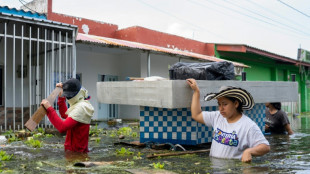
-
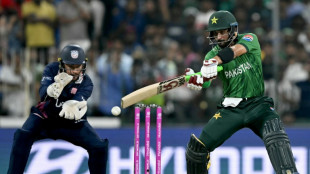 Farhan propels Pakistan to 190-9 against USA in T20 World Cup
Farhan propels Pakistan to 190-9 against USA in T20 World Cup
-
US to scrap cornerstone of climate regulation this week

-
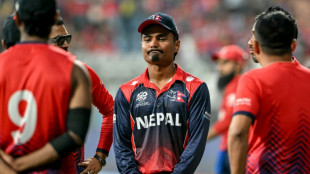 Nepal call for India, England, Australia to play in Kathmandu
Nepal call for India, England, Australia to play in Kathmandu
-
Stocks rise but lacklustre US retail sales spur caution

-
 Olympic chiefs let Ukrainian athlete wear black armband at Olympics after helmet ban
Olympic chiefs let Ukrainian athlete wear black armband at Olympics after helmet ban
-
French ice dancers poised for Winter Olympics gold amid turmoil

-
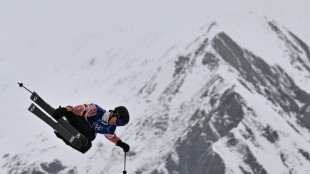 Norway's Ruud wins error-strewn Olympic freeski slopestyle
Norway's Ruud wins error-strewn Olympic freeski slopestyle
-
More Olympic pain for Shiffrin as Austria win team combined

-
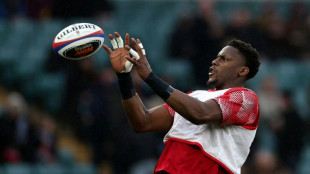 Itoje returns to captain England for Scotland Six Nations clash
Itoje returns to captain England for Scotland Six Nations clash
-
Sahara celebrates desert cultures at Chad festival
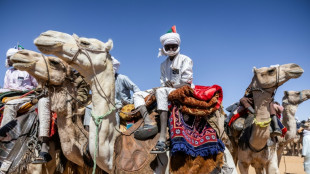
-
 US retail sales flat in December as consumers pull back
US retail sales flat in December as consumers pull back
-
Bumper potato harvests spell crisis for European farmers
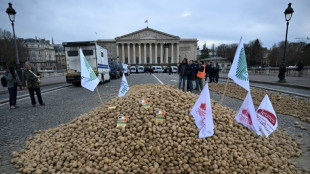
-
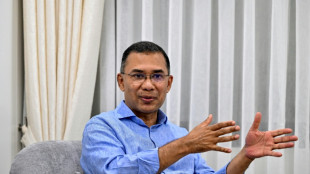 Bangladesh's PM hopeful Rahman warns of 'huge' challenges ahead
Bangladesh's PM hopeful Rahman warns of 'huge' challenges ahead
-
Guardiola seeks solution to Man City's second half struggles

-
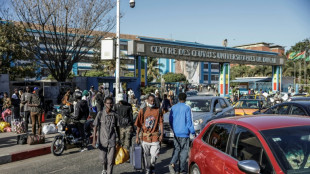 Shock on Senegalese campus after student dies during police clashes
Shock on Senegalese campus after student dies during police clashes
-
US vice president Vance on peace bid in Azerbaijan after Armenia visit
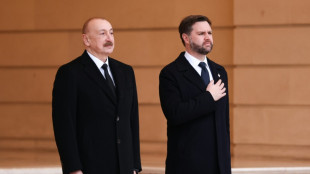
-
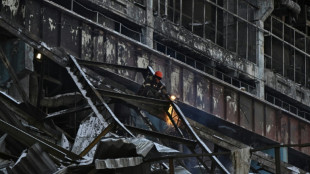 'Everything is destroyed': Ukrainian power plant in ruins after Russian strike
'Everything is destroyed': Ukrainian power plant in ruins after Russian strike
-
Shiffrin misses out on Olympic combined medal as Austria win

-
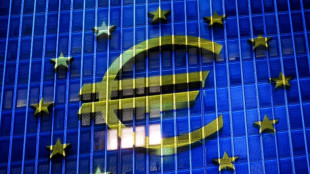 EU lawmakers back plans for digital euro
EU lawmakers back plans for digital euro
-
Starmer says UK govt 'united', presses on amid Epstein fallout
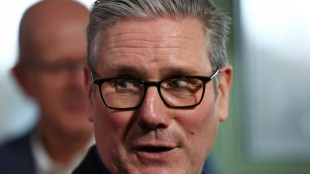
-
 Olympic chiefs offer repairs after medals break
Olympic chiefs offer repairs after medals break
-
Moscow chokes Telegram as it pushes state-backed rival app

-
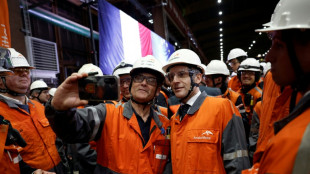 ArcelorMittal confirms long-stalled French steel plant revamp
ArcelorMittal confirms long-stalled French steel plant revamp
-
New Zealand set new T20 World Cup record partnership to crush UAE
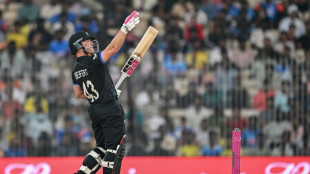
-
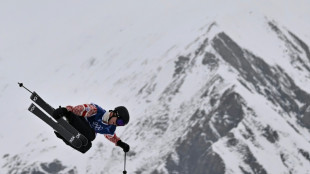 Norway's Ruud wins Olympic freeski slopestyle gold after error-strewn event
Norway's Ruud wins Olympic freeski slopestyle gold after error-strewn event
-
USA's Johnson gets new gold medal after Olympic downhill award broke

-
 Von Allmen aims for third gold in Olympic super-G
Von Allmen aims for third gold in Olympic super-G
-
Liverpool need 'perfection' to reach Champions League, admits Slot

-
 Spotify says active users up 11 percent in fourth quarter to 751 mn
Spotify says active users up 11 percent in fourth quarter to 751 mn
-
AstraZeneca profit jumps as cancer drug sales grow

-
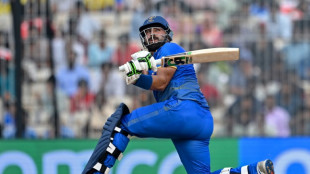 Waseem's 66 enables UAE to post 173-6 against New Zealand
Waseem's 66 enables UAE to post 173-6 against New Zealand
-
Stocks mostly rise tracking tech, earnings

-
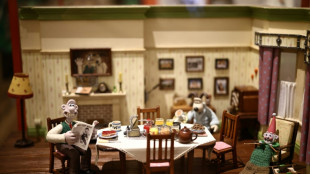 Say cheese! 'Wallace & Gromit' expo puts kids into motion
Say cheese! 'Wallace & Gromit' expo puts kids into motion
-
BP profits slide awaiting new CEO

-
 USA's Johnson sets up Shiffrin for tilt at Olympic combined gold
USA's Johnson sets up Shiffrin for tilt at Olympic combined gold
-
Trump tariffs hurt French wine and spirits exports

-
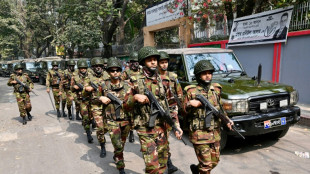 Bangladesh police deploy to guard 'risky' polling centres
Bangladesh police deploy to guard 'risky' polling centres
-
OpenAI starts testing ads in ChatGPT

-
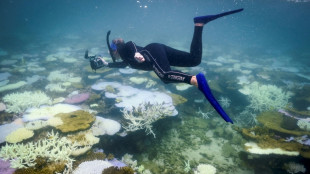 Three-year heatwave bleached half the planet's coral reefs: study
Three-year heatwave bleached half the planet's coral reefs: study
-
England's Buttler calls McCullum 'as sharp a coach as I ever worked with'

-
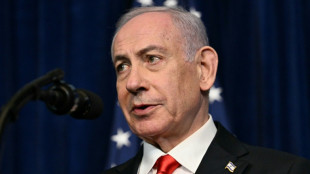 Israel PM to meet Trump with Iran missiles high on agenda
Israel PM to meet Trump with Iran missiles high on agenda
-
Macron says wants 'European approach' in dialogue with Putin
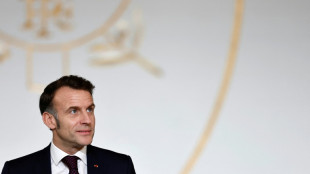
-
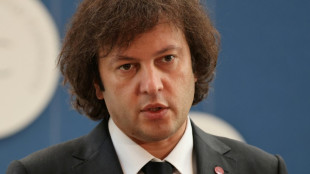 Georgia waiting 'patiently' for US reset after Vance snub
Georgia waiting 'patiently' for US reset after Vance snub
-
US singer leaves talent agency after CEO named in Epstein files

| SCS | 0.12% | 16.14 | $ | |
| RYCEF | 3.04% | 17.41 | $ | |
| RIO | -0.56% | 96.31 | $ | |
| RBGPF | 0.12% | 82.5 | $ | |
| CMSC | 0.02% | 23.59 | $ | |
| NGG | 0.06% | 88.44 | $ | |
| GSK | -0.1% | 58.95 | $ | |
| RELX | 0.66% | 29.675 | $ | |
| AZN | 3.19% | 194.198 | $ | |
| BTI | -2.51% | 59.65 | $ | |
| VOD | -0.99% | 15.329 | $ | |
| JRI | 0.08% | 12.82 | $ | |
| BCC | 1.28% | 90.17 | $ | |
| BCE | 1.33% | 25.965 | $ | |
| CMSD | 0.08% | 23.99 | $ | |
| BP | -6.92% | 36.68 | $ |

Rwanda commemorates 30 years since genocide
Rwandans will on Sunday mark 30 years since a genocide orchestrated by Hutu extremists tore apart their country, as neighbours turned on each other in one of the bloodiest massacres of the 20th century.
The killing spree, which lasted 100 days before the Rwandan Patriotic Front (RPF) rebel militia took Kigali in July 1994, claimed the lives of around 800,000 people, largely Tutsis but also moderate Hutus.
The tiny nation has since found its footing under the iron-fisted rule of President Paul Kagame, who led the RPF, but the scars of the violence remain, leaving a trail of destruction across Africa's Great Lakes region.
In keeping with tradition, April 7 -- the day Hutu militias unleashed the carnage in 1994 -- will be marked by Kagame lighting a remembrance flame at the Kigali Genocide Memorial, where more than 250,000 victims are believed to be buried.
Kagame will place wreaths on the mass graves, flanked by foreign dignitaries including former US president Bill Clinton, who had called the genocide the biggest failure of his administration.
The international community's failure to intervene has been a cause of lingering shame, with French President Emmanuel Macron expected to release a message on Sunday saying that France and its Western and African allies "could have stopped" the bloodshed but lacked the will to do so.
Kagame is also expected to give a speech at a 10,000-seat arena in the capital, where Rwandans will later hold a candlelight vigil for those killed in the slaughter.
- Week of national mourning -
Sunday's events mark the start of a week of national mourning, with Rwanda effectively coming to a standstill and national flags flown at half-mast.
Music will not be allowed in public places or on the radio, while sports events and movies are banned from TV broadcasts, unless connected to what has been dubbed "Kwibuka (Remembrance) 30".
The United Nations and the African Union will also hold remembrance ceremonies.
Karel Kovanda, a former Czech diplomat who was the first UN ambassador to publicly call the events of 1994 a genocide, nearly a month after the killings began, said the massacres should never be forgotten.
"The page cannot be turned," he told AFP in an interview in Kigali, urging efforts to ensure that "the genocide (doesn't) slip into oblivion".
The assassination of Hutu President Juvenal Habyarimana on the night of April 6, when his plane was shot down over Kigali, triggered the rampage by Hutu extremists and the "Interahamwe" militia.
Their victims were shot, beaten or hacked to death in killings fuelled by vicious anti-Tutsi propaganda broadcast on TV and radio. At least 250,000 women were raped, according to UN figures.
Each year new mass graves are uncovered around the country.
In 2002, Rwanda set up community tribunals where victims heard "confessions" from those who had persecuted them, although rights watchdogs said the system also resulted in miscarriages of justice.
Today, Rwandan ID cards do not mention whether a person is Hutu or Tutsi.
Secondary school students learn about the genocide as part of a tightly controlled curriculum.
The country is home to over 200 memorials to the genocide, four of which were added to UNESCO's World Heritage list last year.
- Fleeing justice -
According to Rwanda, hundreds of genocide suspects remain at large, including in neighbouring nations such as the Democratic Republic of Congo and Uganda.
Only 28 have been extradited to Rwanda from around the world.
France, one of the top destinations for Rwandans fleeing justice at home, has tried and convicted half a dozen people over their involvement in the killings.
The French government had been a long-standing backer of Habyarimana's regime, leading to decades of tensions between the two countries.
In 2021, Macron acknowledged France's role in the genocide and its refusal to heed warnings of looming massacres, but stopped short of an official apology.
Ahead of the 30th anniversary, there were renewed calls from rights watchdogs for remaining genocide suspects to be held to account.
"I urge states everywhere to redouble their efforts to bring all surviving suspected perpetrators to justice -- including through universal jurisdiction -- and to combat hate speech and incitement to commit genocide," UN human rights chief Volker Turk said on Friday.
M.A.Colin--AMWN
